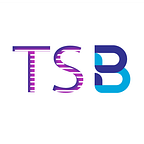Leveraging Blockchain Technology to Combat Fake Reviews (Part 93)
Welcome to the 93rd part of the 100-part series on Blockchain.
In today’s digital age, online reviews play a significant role in shaping consumer decisions. However, the rise of fake reviews has become a pressing issue. Fake reviews pose a significant threat to the integrity of online platforms. Dishonest individuals and businesses may post false reviews to artificially inflate their ratings, damage competitors’ reputations, or manipulate consumer perceptions. These deceptive practices undermine trust and the integrity of online platforms, resulting in financial losses for businesses and misleading genuine consumers from making informed choices.
To address this challenge, blockchain technology offers a promising solution. By leveraging the immutable and transparent nature of blockchain, we can effectively combat fake reviews and restore credibility to online review systems.
(i) Immutable and Transparent Records
Blockchain’s immutability ensures that once a review is recorded on the blockchain, it cannot be altered or deleted. This feature provides a trustworthy and tamper-proof record of reviews. Consumers can have confidence that the information they access is authentic and unaltered. Moreover, the transparent nature of blockchain allows anyone to verify the integrity of reviews by examining the entire chain of records.
(ii) Identity Verification
One of the critical challenges in combating fake reviews is ensuring that they come from genuine individuals. Blockchain technology enables secure identity verification mechanisms. By leveraging cryptographic techniques and decentralized identifiers, users can establish unique digital identities tied to their reviews. This process adds an extra layer of authenticity, making it more difficult for malicious actors to create fake accounts or impersonate others.
(iii) Data Verification and Validation
Blockchain technology can be used to verify and validate data associated with reviews. For example, if a review is related to a specific purchase or transaction, that data can be stored on the blockchain as well. This linkage ensures that reviews are based on actual experiences, reducing the chances of fabricated feedback. By integrating blockchain with external systems or APIs, review platforms can fetch and verify relevant data to enhance the accuracy and credibility of reviews.
(iv) Collaboration and Reputation Systems
Blockchain-powered review systems can facilitate collaboration among users and enable reputation systems. Users can establish reputations based on their history of providing accurate and helpful reviews. This reputation score, stored on the blockchain, becomes an essential factor in evaluating the credibility of reviewers. Users with higher reputation scores are more likely to be trusted by others, enhancing the overall reliability of the review ecosystem.
(v) Enhanced Auditing and Accountability
Blockchain’s transparent nature enables comprehensive auditing of review platforms. The immutable record of reviews and associated actions provides a verifiable audit trail, making it easier to investigate suspicious activities or resolve disputes.
Thus, by leveraging blockchain, it is possible to curtail the spread of fake reviews and restore confidence in the credibility of online platforms.
If you liked this article and want to know more about Blockchain, NFTs, Metaverse, and their applications, click the below link.
Happy learning!
